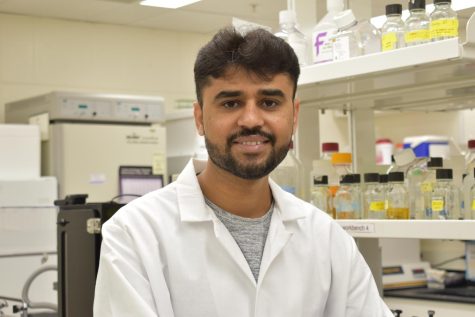The Sci-Files – 03/06/2022 – Azam Ali Sher – Drug-Resistant Bacteria in the Human Gut
March 7, 2022

On this week’s SciFiles, your hosts Chelsie and Daniel interview Azam Ali Sher. Azam is a dual major Ph.D. candidate in Comparative Medicine and Integrative Biology (CMIB) & Environmental Sciences and Integrative Toxicology (EITS), and a BEACON research fellow at Michigan State University. There are around 3 million infections and 36,000 deaths caused by antibiotic-resistant (AR) bacteria in the USA (CDC, 2019), and many disease-causing bacteria are resistant to several different antibiotics. Many bacteria carry their antibiotic resistance genes (ARGs) on conjugative plasmids, small pieces of DNA that can be freely transferable to normal bacteria or pathogens in their natural habitats, such as the human gut. However, little is known about the transfer of these ARGs among bacteria in nature. Azam’s Ph.D. research in Dr. Linda Mansfield’s lab focuses on studying the emergence and spread of antibiotic resistance among human gut bacteria. He addresses a high-impact but straightforward question: what happens if one bacterium with these transferable drug resistance genes colonizes a human gut. He uses laboratory mice with transplanted human gut microbes and colonizes them with bacteria carrying fluorescently labeled ARG plasmids. He then uses advanced molecular techniques to follow the transfer of plasmids to the resident bacteria after colonization. This study will uncover what kinds of bacteria can donate and receive ARGs in the human gut. Azam says that this kind of study will be used to help find some solutions to halt the development of multiple drug-resistant bacteria in the gut and other environments. If you’re interested in talking about your MSU research on the radio or nominating a student, please email Chelsie and Danny at [email protected]. Check The Sci-Files out on Twitter, Facebook, Instagram, LinkedIn, and YouTube!































